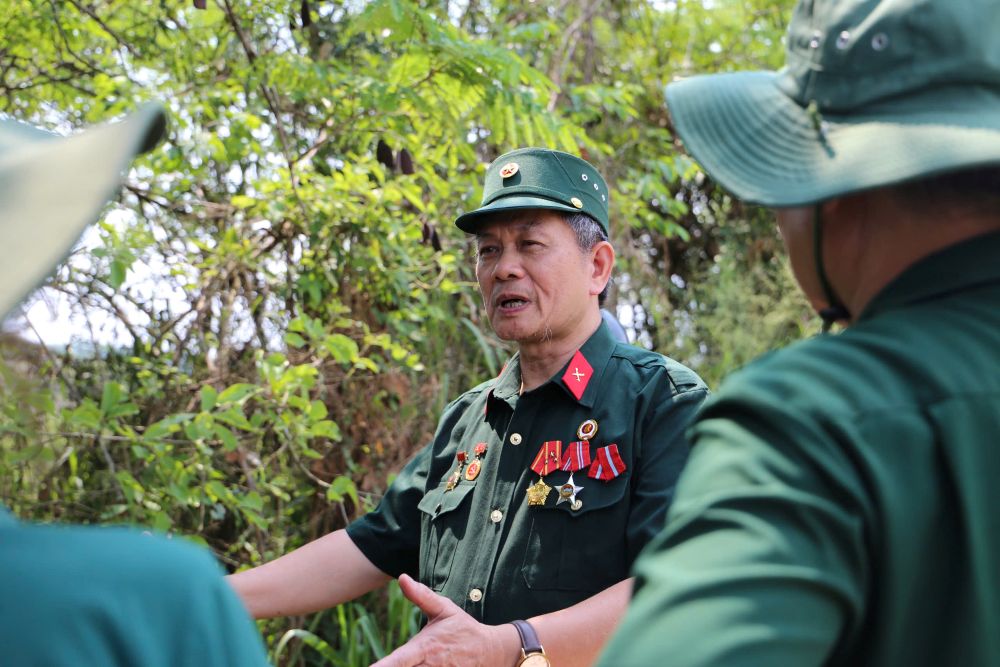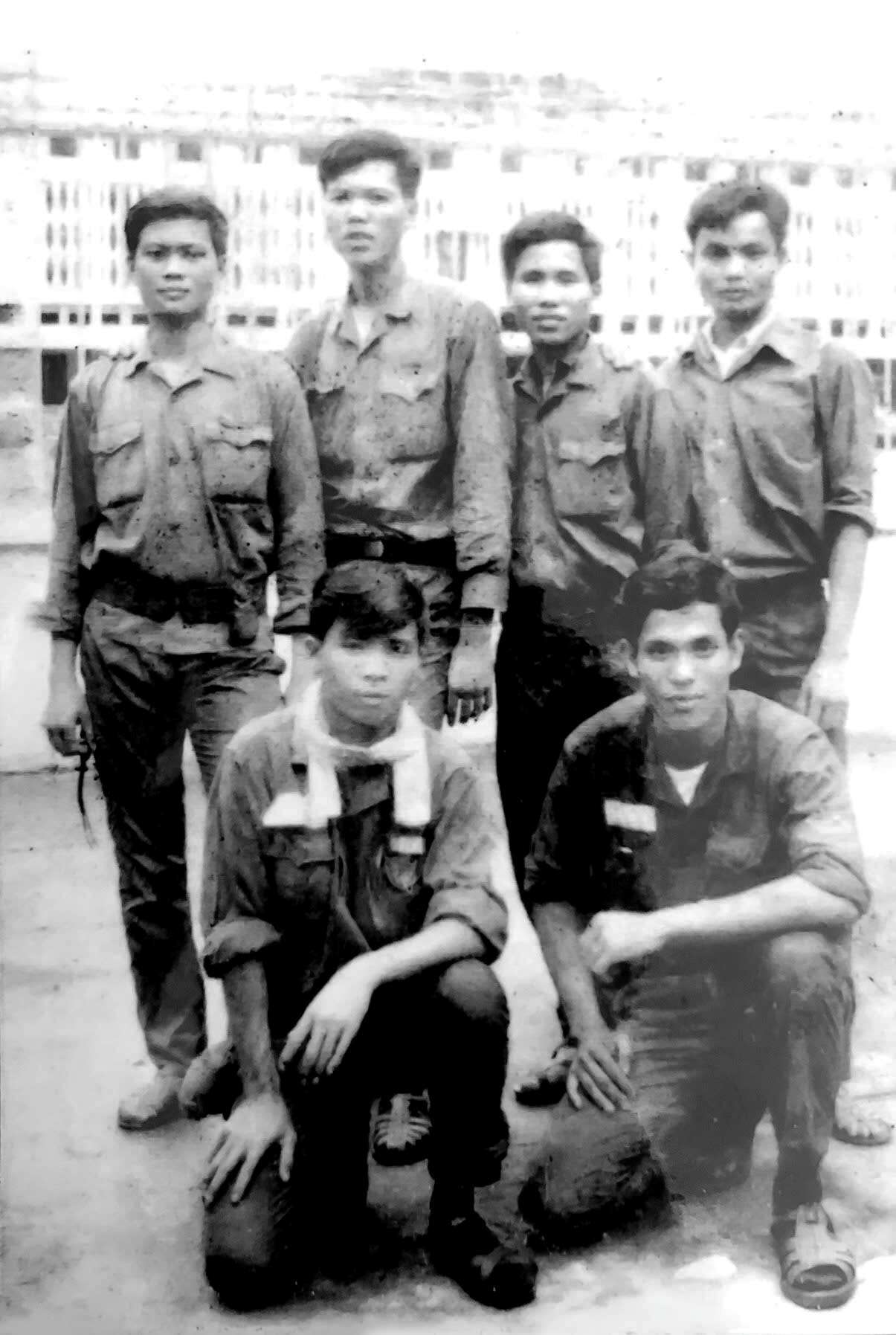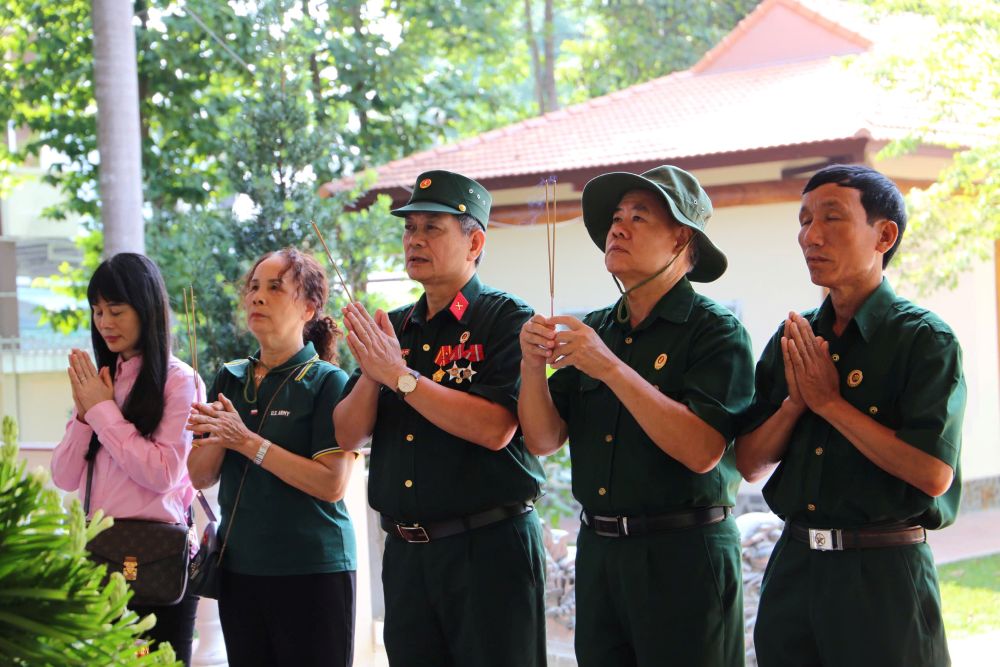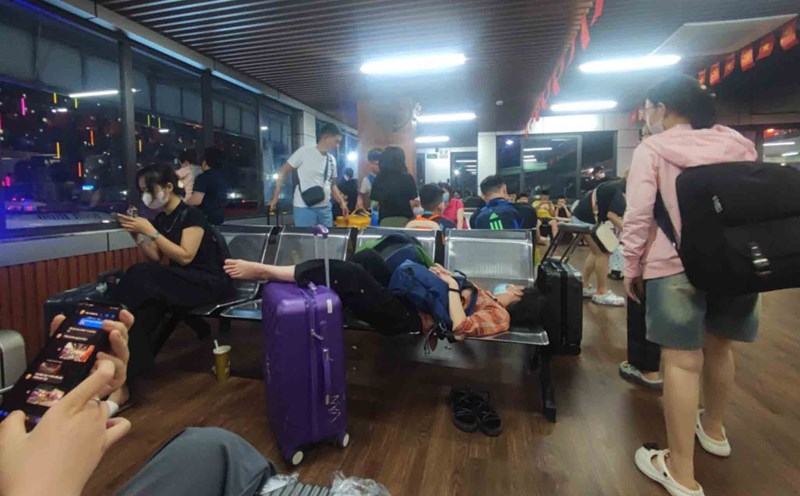More than half a century has passed, the memories of a time of smoke and fire, of comrades who fell on the land of Cu Chi steel are still intact in the heart of veteran Nguyen Hong Nghia. At the age of over 70, he wandered back to the "steel land" of the past, quietly lit incense, remembering those who had always stayed in the battlefield.

Born in 1952 in Cao Bang, Mr. Nguyen Hong Nghia volunteered to enlist when he was 17 years old. After a year of training, the young man was staffed into the sapper force, belonging to the Saigon - Gia Dinh Command (later C1D2S1, under the Ho Chi Minh City Command). The journey for more than 6 months to cross Truong Son has been deep into the minds of young soldiers in hard years.
"Truong Son was a wasteland, with bombs and bullets, and bare trees. Not only facing bombs and bullets, we also have to fight against disease and hunger. Many teammates fell along the way and had not yet reached the battlefield," Mr. Nghia recalled.
When arriving in Cu Chi, Mr. Nghia joined the special forces unit, specializing in performing dangerous reconnaissance missions, closely following the enemy area, and drawing diagrams of the enemy's military bases. "When entering, the beginning goes first, when leaving, the beginning goes back, and every plot of grass that is pressed must be squeezed back. Living among barbed wire fences, living in the line of death and death, just a small mistake would cost him his life", Mr. Nghia's voice sung again when recalling those dangerous days.

Cu Chi at that time was a "bomb bag" with a high density of artillery shells. US aircraft often drop bombs and bullets in this area before landing at Bien Hoa airport. Special forces live right in the hearts of the enemy, disguised as civilians, strictly following the secret principle to survive and fight.
In the last days of the resistance war, Mr. Nghia unit accepted the task of getting the army near the Dong Tao base (Division 25 puppet) on April 26, 1975, creating conditions for the forces to attack Saigon. On the night of April 28, they crossed the channel Xang, ambushed To Dam, paved the way for Mui to attack the Dong Te. On the morning of April 29, the station was conquered. By the afternoon of April 30, the news that President Duong Van Minh surrendered widespread, our troops quickly took over the area.
"After more than half a month of continuous travel and fighting, all the brothers were devastated. Cu Chi people have opened wells, pumped water, and cooked rice for us. The warm affection of the army and people was very touching," Mr. Nghia recalled.
On the same afternoon, the unit headed straight into the inner city, joining the crowd of people celebrating the unification day. For him, the winning Ho Chi Minh campaign was a great historical milestone and also a moment when he deeply felt the miraculous survival after many times approaching death.

Many years after the peace, Mr. Nghia returned to Ho Chi Minh City and returned to Cu Chi. But the old battlefield has changed, the old place name is no longer there, the comrades have some left, some are lost, and communication is difficult. That return was quiet, filled with sadness.
This year, on the occasion of the 50th anniversary of the reunification of the country, the old soldier once again found the old battlefield. Still with the perseverance of the soldier in any year, he asked the people, finding the familiar places to burn incense to commemorate the teammates who were forever lying here.
"Coming back here, my heart is very touched. Everything has changed a lot, but the memories of those difficult and heroic fighting days are still intact," Mr. Nghia choked up as he shared.
Deep in the hearts of veterans is the pain of the sacrifices of their teammates, but there is also comfort when witnessing the country increasingly innovate. "I am lucky to be alive today. If his teammates were alive, they would be happy," he said.











